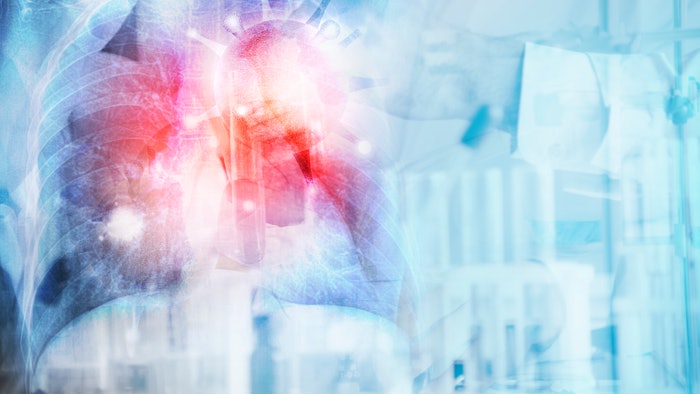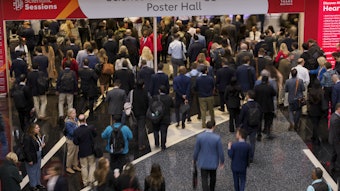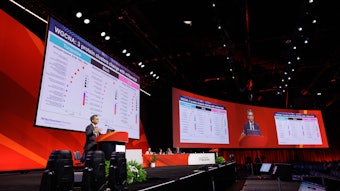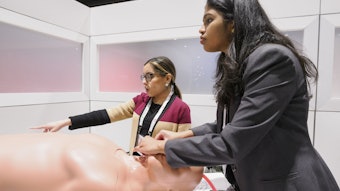COVID-19 Rapid Response Research Consortium yields early results

In the early phases of the pandemic, when reports from China and Italy revealed that COVID-19 patients were developing cardiovascular and stroke complications, the American Heart Association quickly responded.
“We felt a real urgency to provide credible evidence to try to understand what was going on,” said Robert A. Harrington, MD, FAHA, the AHA’s immediate past-president.
With $2.5 million made available for the cause, the AHA requested rapid response grant proposals. A few weeks later, the association received more than 750 applications.
After selecting 16 awardees and four health tech and innovation Strategically Focused Research Network supplemental awards, Dr. Harrington said the AHA set out to do what it does best — respond with science to public health issues.
Early results from five of the 16 studies were highlighted during the “AHA Rapid Response Grant COVID-19 and its Cardiovascular Impact” session Friday:
- COVID-19 infection, African American women and cardiovascular health
Michelle A. Albert, MD, MPH, professor and associate dean of admissions at the University of California at the San Francisco School of Medicine, said that Black women are experiencing not just a pandemic, but a “syndemic,” or synergistic epidemic — a combination of COVID-19 and the resulting exacerbation of social inequalities caused by systemic racism in the United States. Black people are dying from COVID-19 at higher rates than others, and yet Black women who are reporting more unfair medical treatment are displaying higher resilience (in factors such as emotional regulation and self-reliance) than their White counterparts, said Dr. Albert, the 2020 recipient of the AHA’s Population Research Prize.
- Harnessing glycomics to understand myocardial injury in COVID-19
Rebekah L. Gundry, PhD, professor, director of the CardiOmics program and assistant chief for basic and translational research in cardiovascular medicine at the College of Medicine at the University of Nebraska Medical Center, presented glycans research as it relates to COVID-19 and the heart. By harnessing the glycome and extracting data, Dr. Gundry said she hopes to identify signatures in the blood that predict which patients will be more susceptible to COVID-19 infection and post-viral cardiovascular disease as well as inform mechanisms of myocardial injury.
- Repurposing drugs for COVID-19
Joseph Loscalzo, MD, PhD, head of the Department of Medicine at Brigham and Women’s Hospital and Harvard Medical School, displayed visuals of a COVID-19 disease module, dubbed the “Cardiac Covidome.” It shows 322 human proteins to which 26 SARS-CoV-2 proteins bind. Possible repurposed drugs then must target proteins within the Covidome or very near it to be effective in treatment. One of four disease modules that overlap with the Covidome is that for obesity, Dr. Loscalzo said.
- SARS-CoV-2 and ACE2: Viral susceptibility and drugs
Michael Bristow, MD, PhD, professor of medicine and cardiology at the University of Colorado School of Medicine, has been working with ACE2 for almost 25 years and is now studying its role as a SARS-CoV-2 receptor for cell entry. In conjunction with Gregory Bix, MD, PhD, FAHA, the director of the Clinical Neuroscience Research Center at Tulane, he is analyzing the roles of the integrin-binding peptide, ATN-161, as a novel therapy.
- COVID-19 and thromboembolism
Jane E. Freedman, MD, cardiologist at the University of Massachusetts Medical School, said patients with COVID-19 are at an increased risk of thrombosis, with thrombotic events occurring in 16% of patients studied. “Treatment is complicated, because it appears to be a diffuse collection of arterial and venous thrombotic diseases,” Dr. Freedman said. She’s studying the role of antiplatelet agents.
To learn more about the AHA COVID-19 Rapid Response Research Consortium and other funded research projects, visit https://professional.heart.org/en/research-programs/aha-rapid-response-grant-covid19.











